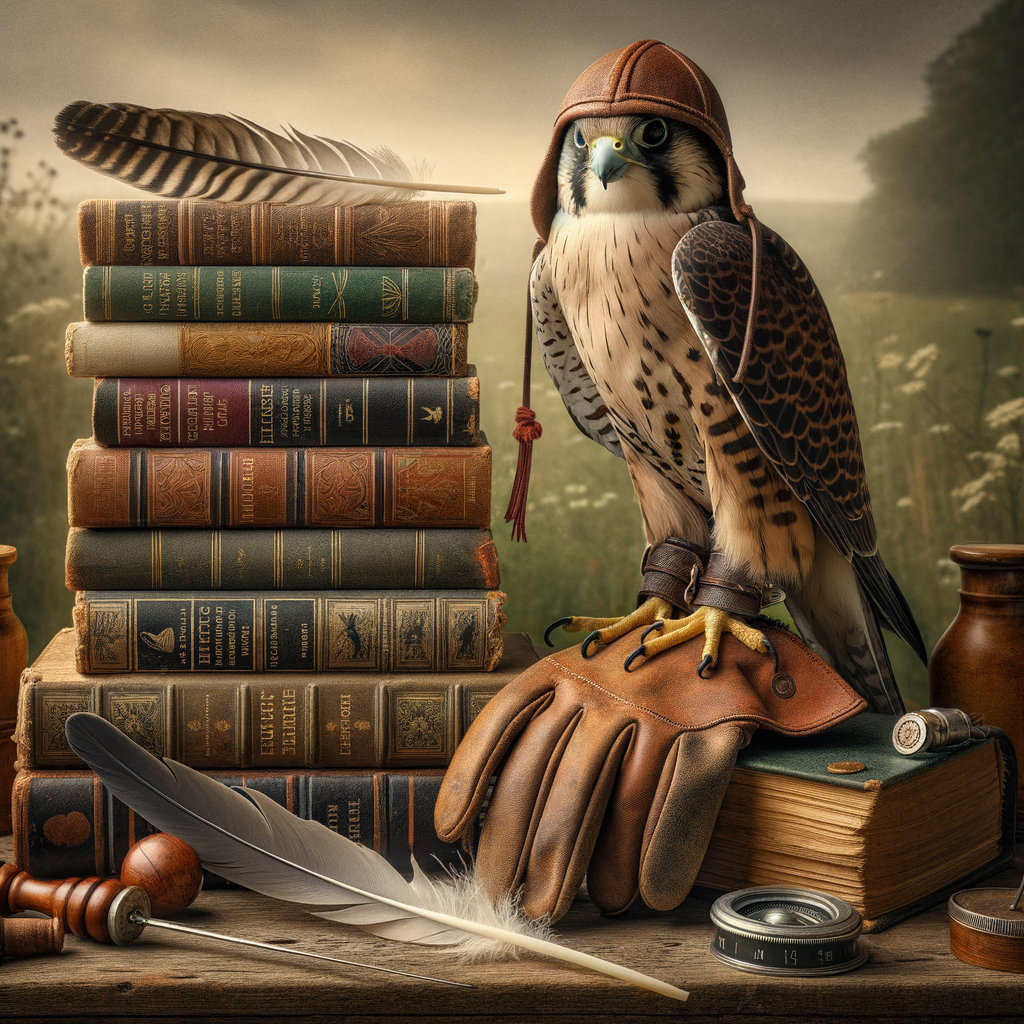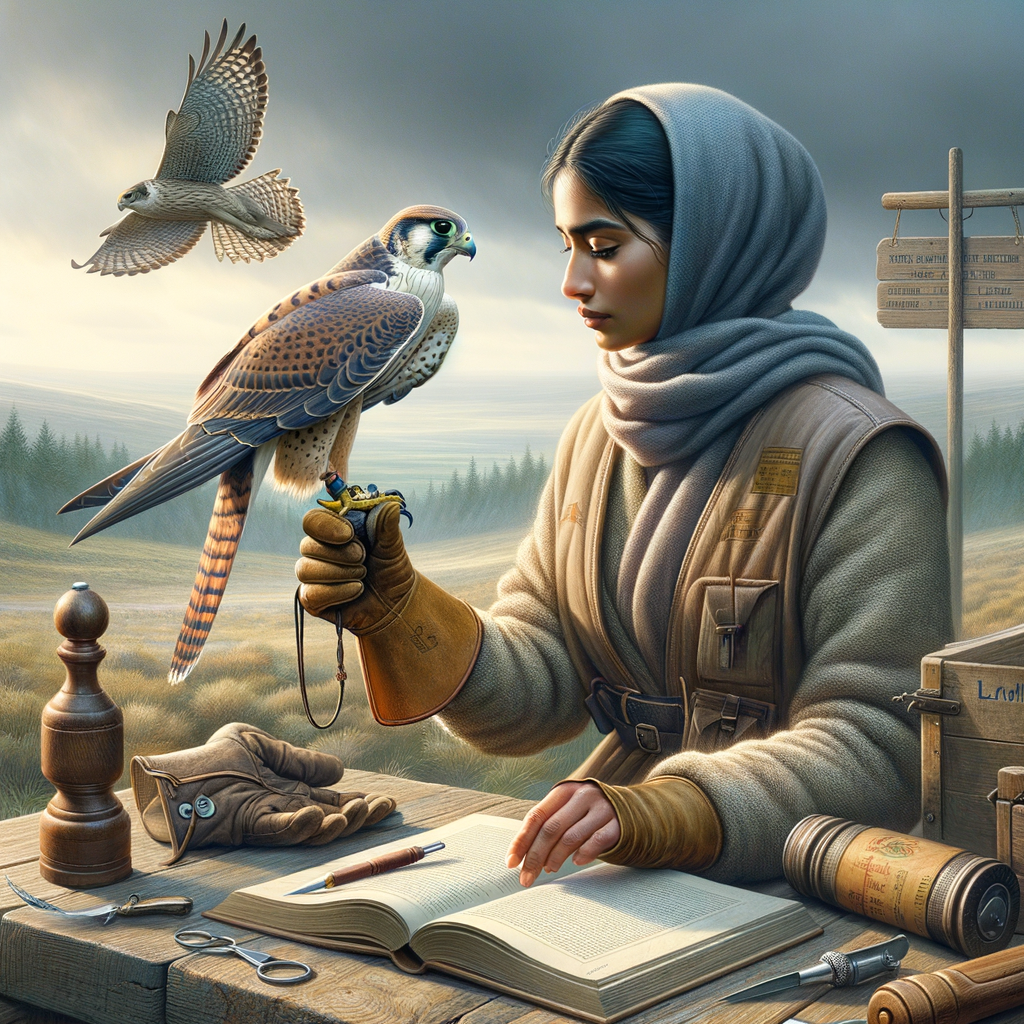Key takeaway points:
- Falconry terminology includes specific vocabulary for bird types, equipment, and techniques
- Understanding different categories of birds used in falconry is essential
- Familiarity with training methods and handling practices is important
- Knowledge of legal and ethical considerations in falconry is crucial
- Recognizing key terms related to falconry equipment and practices aids comprehension
Spreading Your Wings: A Beginner’s Guide to Falconry Literature
Hey there, future falconer! Ever dreamed of having a majestic bird of prey perched on your arm? Well, you’re in for a treat! Welcome to the fascinating world of falconry, where history, nature, and adventure collide.
Before you can soar with the eagles (or hawks, or falcons), you’ve got to get your feet on the ground. And what better way to start than with a good book? That’s right – we’re diving into the must-read literature for beginner falconers.
Now, you might be thinking, “Why should I bother with books when I could be out there, learning hands-on?” Great question! Here’s the deal:
- Safety first! Books teach you the dos and don’ts before you handle a bird.
- Learn from the pros. Centuries of falconry wisdom are at your fingertips.
- Understand your future feathered friend. Books help you pick the right bird for you.
- Save time and money. Avoid rookie mistakes by learning from others’ experiences.
In this guide, we’ll walk you through the essential reads that’ll turn you from a falconry newbie to a well-informed apprentice. From ancient texts to modern manuals, we’ve got you covered.
So, grab a cup of coffee, find a cozy spot, and let’s embark on this literary adventure together. Trust us, your future falcon will thank you for it!
Beginner’s Guide to Falconry Literature
Falconry literature is a treasure trove of knowledge for both novice and experienced falconers. Here’s a comprehensive guide to help beginners navigate the world of falconry books and resources.
Best Books for Falconry Beginners
- “The Falconer’s Apprentice” by William C. Oakes
- A classic introduction to the art of falconry
- Covers basic techniques and equipment
- “North American Falconry and Hunting Hawks” by Frank Beebe and Harold Webster
- Comprehensive guide for beginners in North America
- Detailed information on training and hunting techniques
- “The Red-Tailed Hawk: A Complete Guide to Training and Hunting North America’s Most Versatile Game Hawk” by Liam McGranaghan
- Focuses on a popular species for beginners
- Step-by-step training instructions
For more book recommendations, check out our falconry books page.
Online Resources for Learning Falconry
- Learn Falconry Website
- Comprehensive articles on various falconry topics
- Perfect for beginners to explore different aspects of the sport
- North American Falconers Association (NAFA)
- Official website with educational resources
- Information on regulations and conservation
- The Modern Apprentice
- Free online resource for beginners
- Detailed guides on falconry techniques and equipment
Recommended Falconry Magazines for Novices
- American Falconry Magazine
- Published by NAFA
- Features articles on training, equipment, and conservation
- International Journal of Falconry
- Global perspective on falconry practices
- Includes both beginner and advanced content
- Hawk Chalk
- Quarterly publication for NAFA members
- Covers a wide range of falconry topics suitable for beginners
Understanding Falconry Terminology in Literature
Falconry has a rich vocabulary that can be overwhelming for beginners. Here are some tips to help you navigate the terminology:
- Use a falconry glossary
- Many falconry books include a glossary section
- Our falconry terms and definitions page is a great resource
- Context clues
- Read carefully and use surrounding information to understand unfamiliar terms
- Join online forums
- Engage with experienced falconers to clarify terms and concepts
- Attend falconry events
- Falconry clubs and organizations often host events where you can learn terminology in context
Remember, understanding falconry literature is a gradual process. Start with beginner-friendly books and resources, and gradually work your way up to more advanced material as you gain experience in the field.
For more information on getting started in falconry, visit our falconry for beginners section.
Conclusion
Falconry literature offers a wealth of knowledge for beginners eager to embark on this ancient art. From comprehensive guidebooks to engaging memoirs, these resources provide essential insights into the practice, ethics, and history of falconry. As you begin your journey, remember that books are invaluable tools, but they’re just the starting point. Combine your reading with hands-on experience and mentorship to truly master the craft.
Whether you’re drawn to the practical advice in “The Falconer’s Apprentice” or the historical perspective of “The Art of Falconry,” each book contributes to your understanding of this complex and rewarding pursuit. As you delve into these works, you’ll not only learn the technical aspects of falconry but also develop a deep appreciation for the bond between falconer and bird.
Ultimately, the literature serves as a foundation, but your passion and dedication will determine your success in falconry. So, pick up a book, immerse yourself in the knowledge of experienced falconers, and prepare for an extraordinary adventure in the world of raptors.



